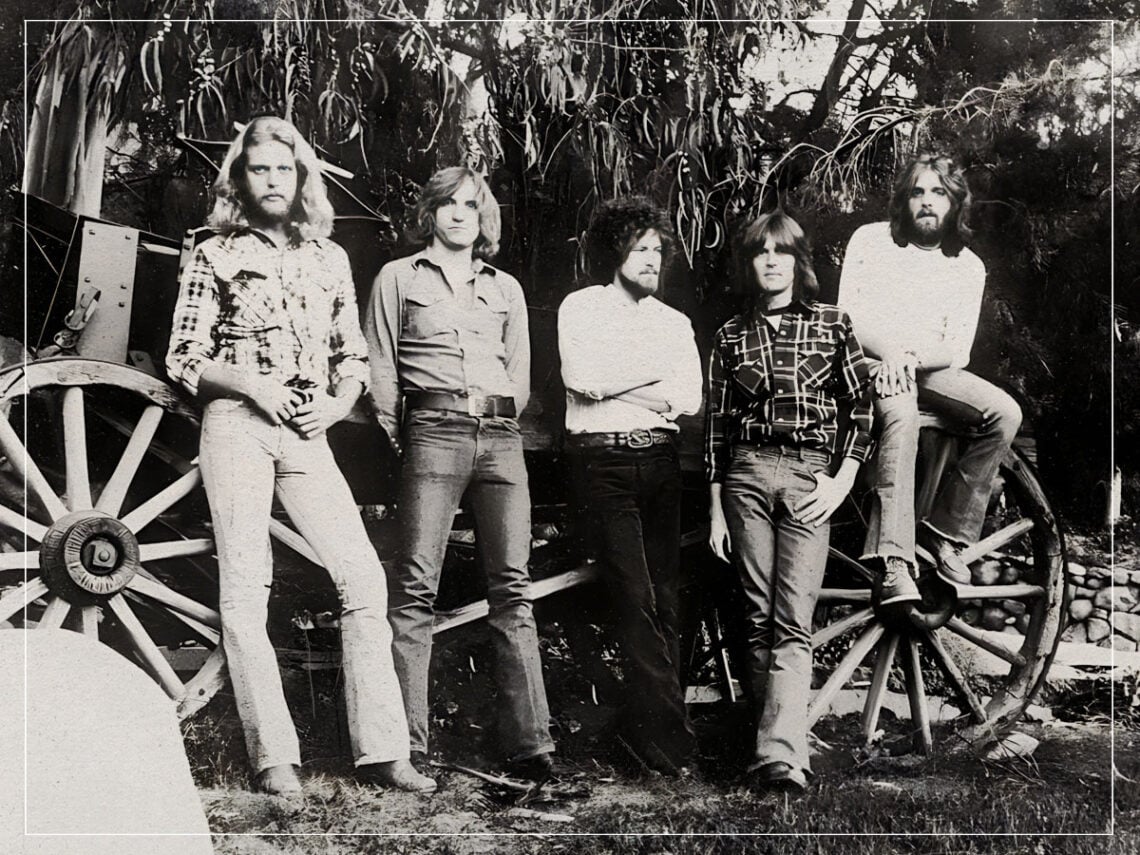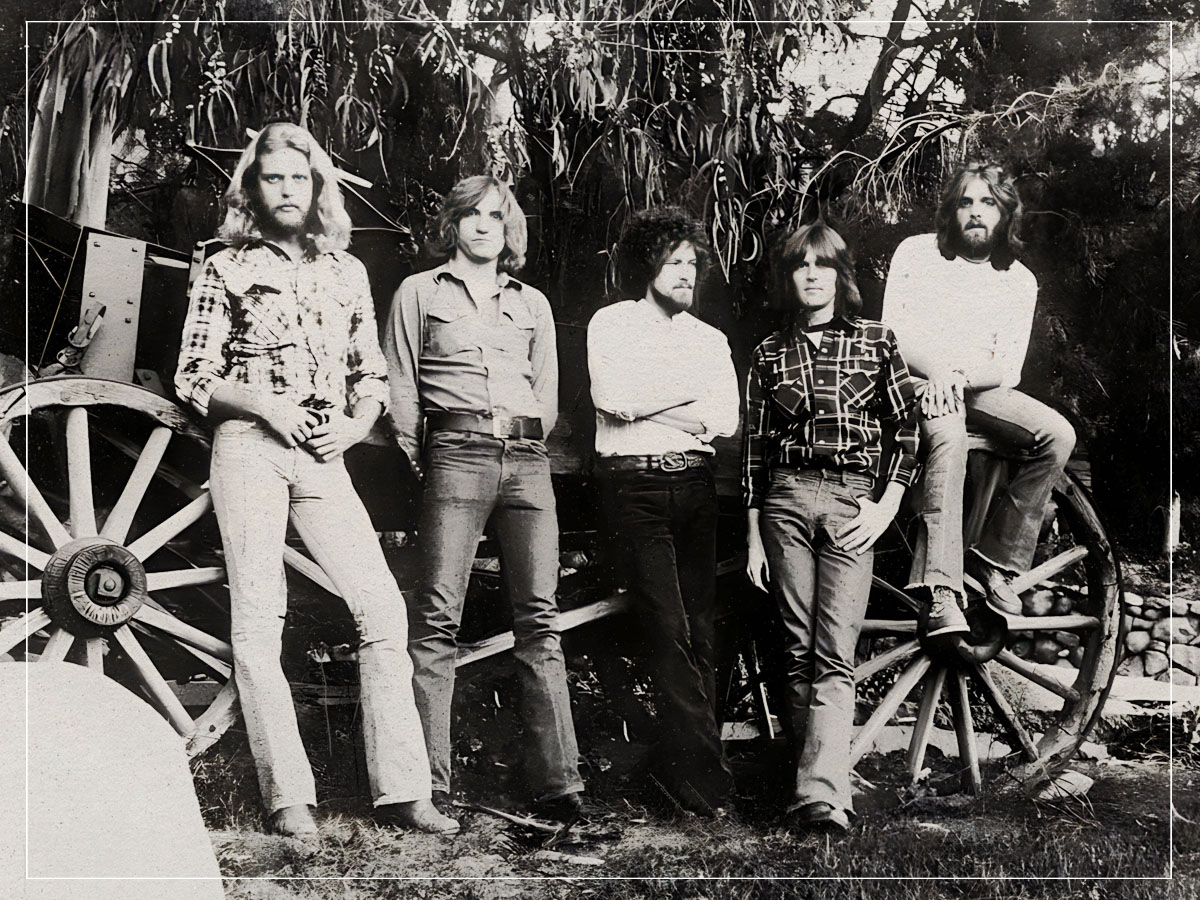
(Credits: Far Out / Alamy)
Fri 8 August 2025 23:00, UK
If you were to drive down America’s glistening West Coast, basking in the glory of the Californian sunshine, there is arguably only one band suited for the soundtrack. Ignoring the fear of reducing their quality, I’m going to comfortably claim that Eagles are the definitive road trip band.
Their sound is inherently linked to the wide-eyed romanticism of the United States. With anthemic choruses, driven by the soaring harmonies of their three singers, they are the sonic embodiment of a smooth-running Corvette, rolling endlessly across the expanse of a sunset-laden straight road.
They were wilfully adopted by those celebrating the idea of the ‘American Dream’: The grand illusion that in one particular country, opportunity and prosperity provide an equal playing field, open to those willing to step forward and grab it. Naturally, five wealthy rock stars singing about ‘Life in the Fast Lane’ were the flagbearers of such an idea.
But perhaps their most brilliant move was in their veiled attack on the concept. The creation of a song that challenged their fans to question the source of their own success, the price it comes at, and what truly exists behind the bright lights of a global tour.
Two years after the release of their seminal album Hotel California, the band were at the top of the musical mountain. Enjoying the fruits of their glamorous success, sure, but equally spending time fending off the waiting teeth of industry sharks. Because come 1979, Eagles were one of the hottest tickets in town, bringing in money as well as the net of bureaucracy.
In a bid to understand this new world of artistic business they found themselves in, the band penned their most scathing take on the entire system, ‘King of Hollywood’. Written by the band’s leaders, Glenn Frey and Don Henley, the song paints the picture of a man they would have undoubtedly encountered during their time at the top.
Their taste of Hollywood, which was rapidly turning sour, was funnelled through the song’s protagonist, a man who “sits up there on his leatherette” and “looks through pictures of the ones that he hasn’t had yet”. It is a portrayal of the ultimate Hollywood operator who, unbeknownst to aspiring talent, is the master of their fate.
An idea Henley and Frey crystallise in the following verse, singing, “Come sit down here beside me, honey / Let’s have a little heart to heart / Now look at me and tell me, darling / How badly do you want this part?”
While we like to glamourise the opulence of late 20th-century Hollywood, especially through the lens of Eagles’ cinematic brand of rock, this was undoubtedly the bleak reality. Hollywood was the definitive exploitative industry, largely controlled by men in suits, lounging on leatherettes with predatory subplots at play. In fact, it’s the sort of behaviour that could quite feasibly have taken place in the oh so famous ‘Hotel California’, a song that, as well as being iconic, remains the centre point for their entire thematic approach.
Related Topics

